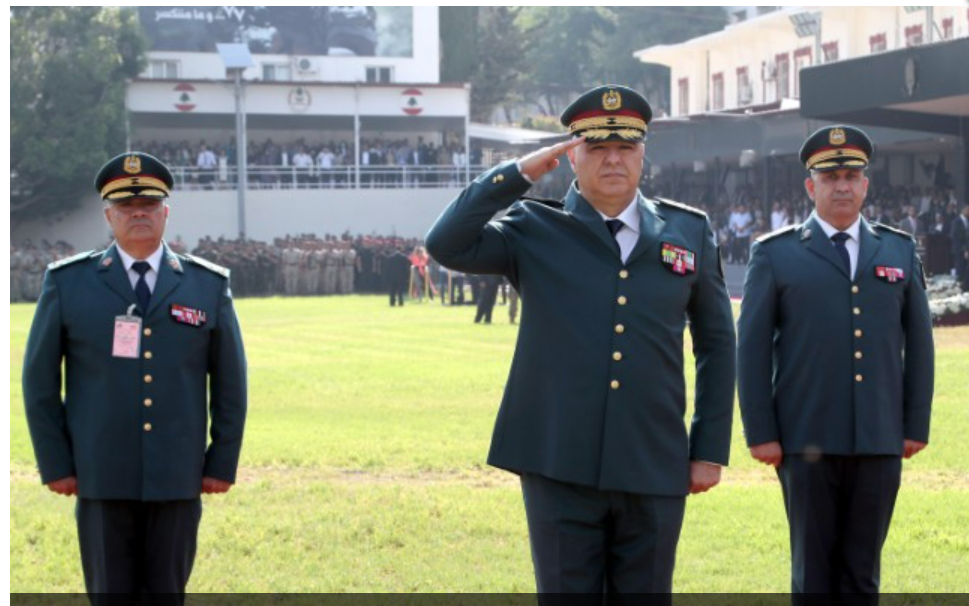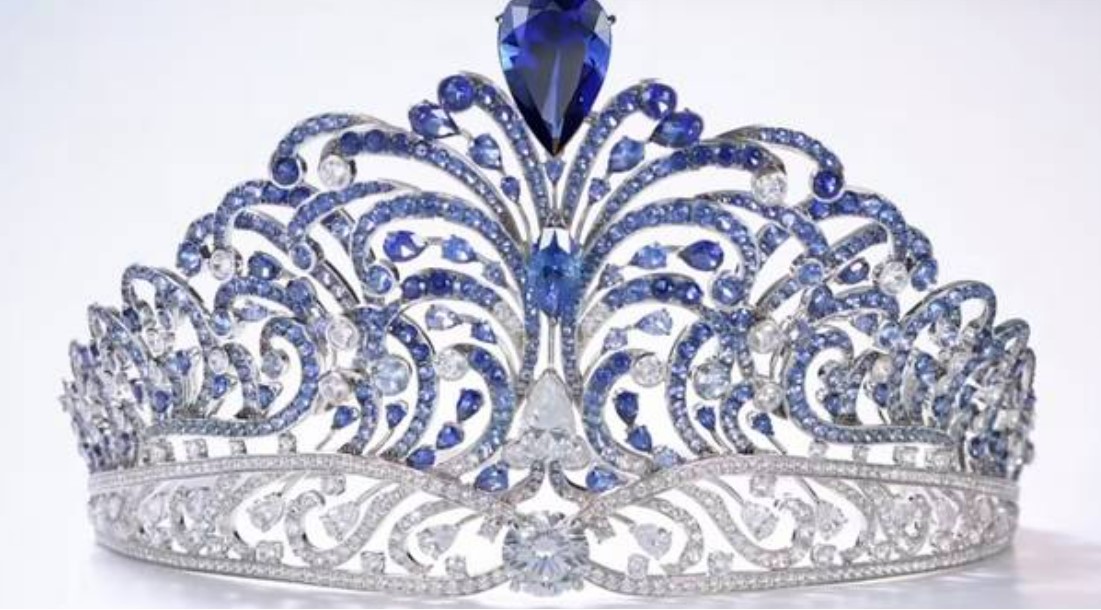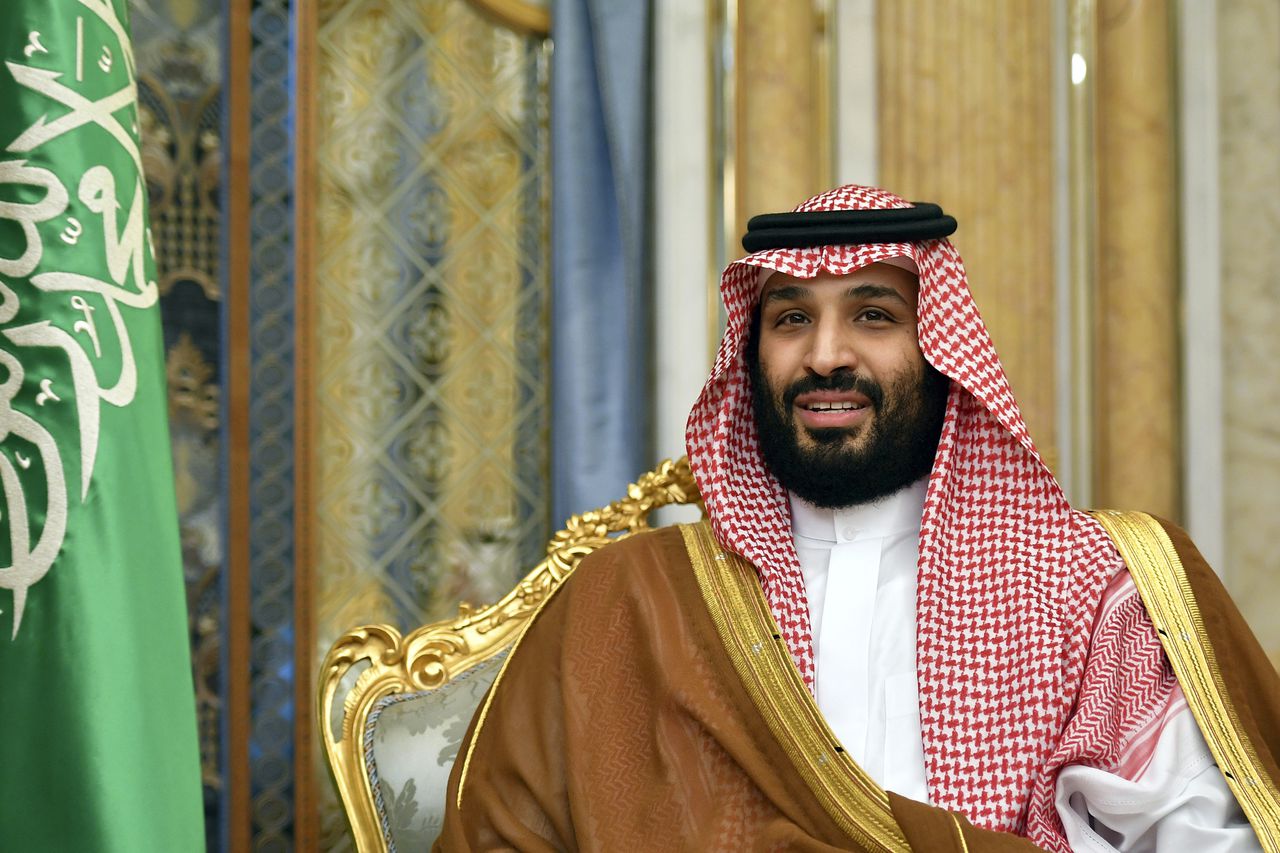
By AFP -- Private Sean Rooney, 23, was killed and three others injured on December 14 when their UN Interim Force in Lebanon (UNIFIL) vehicle was attacked near the village of Al-Aqbiya in Lebanon's south. The area is a stronghold of powerful Iran-backed armed group Hezbollah. One of the injured was medevaced home to Ireland on Wednesday for further treatment. "The investigation has been able to identify suspects but so far none has been arrested and the security services are still looking for them," said the judicial official who could not be further identified. The UN patrol "was the target of gunfire from at least two people" when it arrived in Al-Aqbiya, according to the same source. Citing preliminary findings, the source said the incident "was premeditated and the patrol was surveilled and followed by a car carrying armed men".
UNIFIL acts as a buffer between Lebanon and Israel, neighbours which remain technically at war. The force operates near the southern border. Wafic Safa, Hezbollah's security chief, has said the killing was "unintentional". Witnesses said villagers in the Al-Aqbiya area blocked Rooney's vehicle after it took a road along the Mediterranean coast not normally used by UNIFIL. Al-Aqbiya is just outside UNIFIL's area of operations, the force said.

By MICHAEL YOUNG thenationalnews.com -- -- Lebanon has been without a president since the end of October, when Michel Aoun’s term ended. Since then, the political forces in the country have failed to reach a consensus on a successor. This is necessary, since parliament elects presidents in Lebanon, and what emerged from the elections in May is effectively a hung parliament. Broadly speaking, there are two major parliamentary alignments. One is led by Hezbollah, and includes the Free Patriotic Movement (FPM), led by Gebran Bassil, Mr Aoun’s son-in-law, and speaker of parliament Nabih Berri’s bloc. The other alignment, which tends to oppose Hezbollah, despite notable exceptions, that includes the mainly Christian Lebanese Forces Party, the Kataeb Party, the bloc led by Druze leader Walid Jumblatt, and a number of Sunni parliamentarians close to former prime minister Saad Hariri. A much more amorphous bloc of independents fluctuates between the two. Parliament has held almost a dozen electoral sessions since October, to no avail, as the search for a successor to Mr Aoun seems frozen. Yet that assessment may not be so accurate. Behind the scenes a search is going on for a new president, one who would benefit from a consensus inside Lebanon, but who would also build trust regionally and internationally.
One of the countries engaged in this effort, according to analysts and diplomats in Beirut, is Qatar, which, with France, has been trying to build Arab backing for a candidate. The Qataris have reportedly told their interlocutors that their preference is for the election of the army commander, Joseph Aoun. Proof of Qatari interest came recently, when they invited Mr Aoun to Doha, before hosting another presidential hopeful, Mr Bassil. While the commander discussed military issues with the Qataris, there was little doubt that his visit was tied to the presidency. Mr Bassil’s trip, in turn, could have been aimed at facilitating his approval of a Joseph Aoun presidency, although at this stage much remains unclear. There are several hoops Aoun will have to go through before there is a concurrence of views around his candidacy Qatar’s role is hardly fortuitous. In 2008, the Qataris were instrumental in negotiating a compromise among Lebanese political factions after armed clashes in and around Beirut. At the time, this compromise, known as the Doha Agreement, involved paving the way for the election of then army commander Michel Suleiman as president and giving Hezbollah and its allies veto power in the cabinet, which they had demanded. That explains why Qatar has maintained the trust of Hezbollah, and why the party will take seriously any deal on the presidency proposed by the Qataris. At the same time, Qatar is seen as instrumental in persuading the Saudis of any agreement reached in Lebanon.
This led one Arab diplomat, cited by a Lebanese newspaper, to speak about Joseph Aoun’s invitation to the emirate: “This invitation, with this timing, is undoubtedly a political message that aims to say that General Aoun’s candidacy for the presidency benefits from Qatar’s support, but also that of France, the United States, Egypt, and Saudi Arabia.” However, those remarks may be slightly ahead of the curve. If we assume the initiative to promote the army commander is serious, and all the signs are that it is, there are several hoops he will have to go through before there is a concurrence of views around his candidacy. And for the time being, nothing indicates we have reached that stage yet.

By David Tusing -- thenationalnews.com -- At the 71st Miss Universe pageant in January, not only will a winner be announced, but she will get to wear a new crown, crafted by Lebanese jewellery brand Mouawad. The crown, called Force for Good, was unveiled at a glitzy event in Bangkok on Monday by Fred Mouawad, the "co-guardian" of the Beirut-founded brand, as well as the Miss Universe Organisation's new Thai owner Anne Jakkaphong Jakrajutatip. Former Miss Universe title holders Natalie Glebova (2005) from Canada and Thailand's Apasra Hongsakula (1965), also attended the event. "The Force for Good crown is a work of extraordinary craftsmanship. It's a crown filled with symbolism. And we hope it will inspire not only the winners, but all of you to be a force for good," Mouawad said at the presentation, adding that the crown represents "a future forged by women who push the limits of what's possible".
Embedded with 110 carats of blue sapphires and 48 carats of white diamonds, the Force for Good crown features wave-like curls at the base, that emulates a serpent's head, "symbolising the challenges involved in swaying opponents," a description by Mouawad reads. The colour gradiant of the predominantly white diamond base then changes to the blue of sapphires towards the top where a blue pear-shaped sapphire sits at the pinnacle, representing hope for a brighter future.
Founded in 1908 in Beirut and now with its headquarters in Geneva, Mouawad has been crafting one-of-a-kind pieces for royal families as well as the wealthy for four generations. It became the official jeweller for Miss Universe in 2019 when it crafted the crown for the winner of the title, South Africa's Zozibini Tunzi. Called The Power of Unity, the crown, estimated to be between $4 million and $5 million, has been passed on to successive winners. Miss Universe 2021, India's Harnaaz Sandhu will be the last one to wear it. "We thought, 'What can we do that's in line with our heritage, something majestic that would have a very wide exposure?'," Mouawad told The National in a previous interview, referring to how his company's relationship with the Miss Universe Organisation began. "And we thought of Miss Universe, because we are, after all, jewellers to royalty. So why don't we use our know-how to also create a crown for the most beautiful women in the world?" Estimated to be worth $5.5 million, the Force for Good crown comes amid a host of changes at the 70-year-old Miss Universe competition.

By insider@insider.com -- Natalie Armbruster -- This month, Chinese President Xi Jinping arrived in Riyadh for a three-day visit which included a bilateral meeting between China and Saudi Arabia, a Gulf-China summit, and an Arab-China summit, coming to a consensus on China-Saudi energy and technology cooperation. Throughout the visit, Western media has been quick to conclude that the deals are a message to the West — a snub to Washington and President Joe Biden. However, to assume that China views the Middle East through the same lens the United States has used for the last 30 years is a mistake. China has long assessed US involvement in the Middle East to be damaging to American power and strength. Xi's visit, and China's interest, investment, and involvement in the Middle East, have far more to do with shared economic interests and a stable energy supply than any potential security alliance or geopolitical aspirations.
The first thing to know is China's involvement in the Middle East rests primarily on its energy dependence. In 2021, 72% of China's crude oil consumption was imported. The Middle East accounted for 50% of these imports. China alone accounted for more than one-quarter of Saudi Arabia's crude oil exports as well. As long as China remains reliant on external sources of oil and Saudi Arabia is looking to make a profit, it is only natural for Saudi Arabia and China to expand their economic cooperation — bilateral trade which currently amounts to $87.3 billion. This remains true for China's heavy investment in the Middle East through the Belt and Road Initiative. China's BRI investments have focused largely on the construction of ports and industrial parks in countries such as Egypt, Oman, Saudi Arabia, or the United Arab Emirates. One needs to know little about geography to observe that China's investments center around secure and stable access to vital energy and trade chokepoints: the Persian Gulf, the Gulf of Oman, the Red Sea, the Bab al-Mandeb Strait, the Strait of Hormuz, the Suez Canal, etc.
Khazen History


Historical Feature:
Churches and Monasteries of the Khazen family

St. Anthony of Padua Church in Ballouneh
Mar Abda Church in Bakaatit Kanaan
Saint Michael Church in Bkaatouta
Saint Therese Church in Qolayaat
Saint Simeon Stylites (مار سمعان العامودي) Church In Ajaltoun
Virgin Mary Church (سيدة المعونات) in Sheilé
Assumption of Mary Church in Ballouneh
1 - The sword of the Maronite Prince
2 - LES KHAZEN CONSULS DE FRANCE
3 - LES MARONITES & LES KHAZEN
4 - LES MAAN & LES KHAZEN
5 - ORIGINE DE LA FAMILLE
Population Movements to Keserwan - The Khazens and The Maans
ما جاء عن الثورة في المقاطعة الكسروانية
ثورة أهالي كسروان على المشايخ الخوازنة وأسبابها
Origins of the "Prince of Maronite" Title
Growing diversity: the Khazin sheiks and the clergy in the first decades of the 18th century
Historical Members:
Barbar Beik El Khazen [English]
Patriach Toubia Kaiss El Khazen(Biography & Life Part1 Part2) (Arabic)
Patriach Youssef Dargham El Khazen (Cont'd)
Cheikh Bishara Jafal El Khazen
Patriarch Youssef Raji El Khazen
The Martyrs Cheikh Philippe & Cheikh Farid El Khazen
Cheikh Nawfal El Khazen (Consul De France)
Cheikh Hossun El Khazen (Consul De France)
Cheikh Abou-Nawfal El Khazen (Consul De France)
Cheikh Francis Abee Nader & his son Yousef
Cheikh Abou-Kanso El Khazen (Consul De France)
Cheikh Abou Nader El Khazen
Cheikh Chafic El Khazen
Cheikh Keserwan El Khazen
Cheikh Serhal El Khazen [English]
Cheikh Rafiq El Khazen [English]
Cheikh Hanna El Khazen
Cheikha Arzi El Khazen
Marie El Khazen